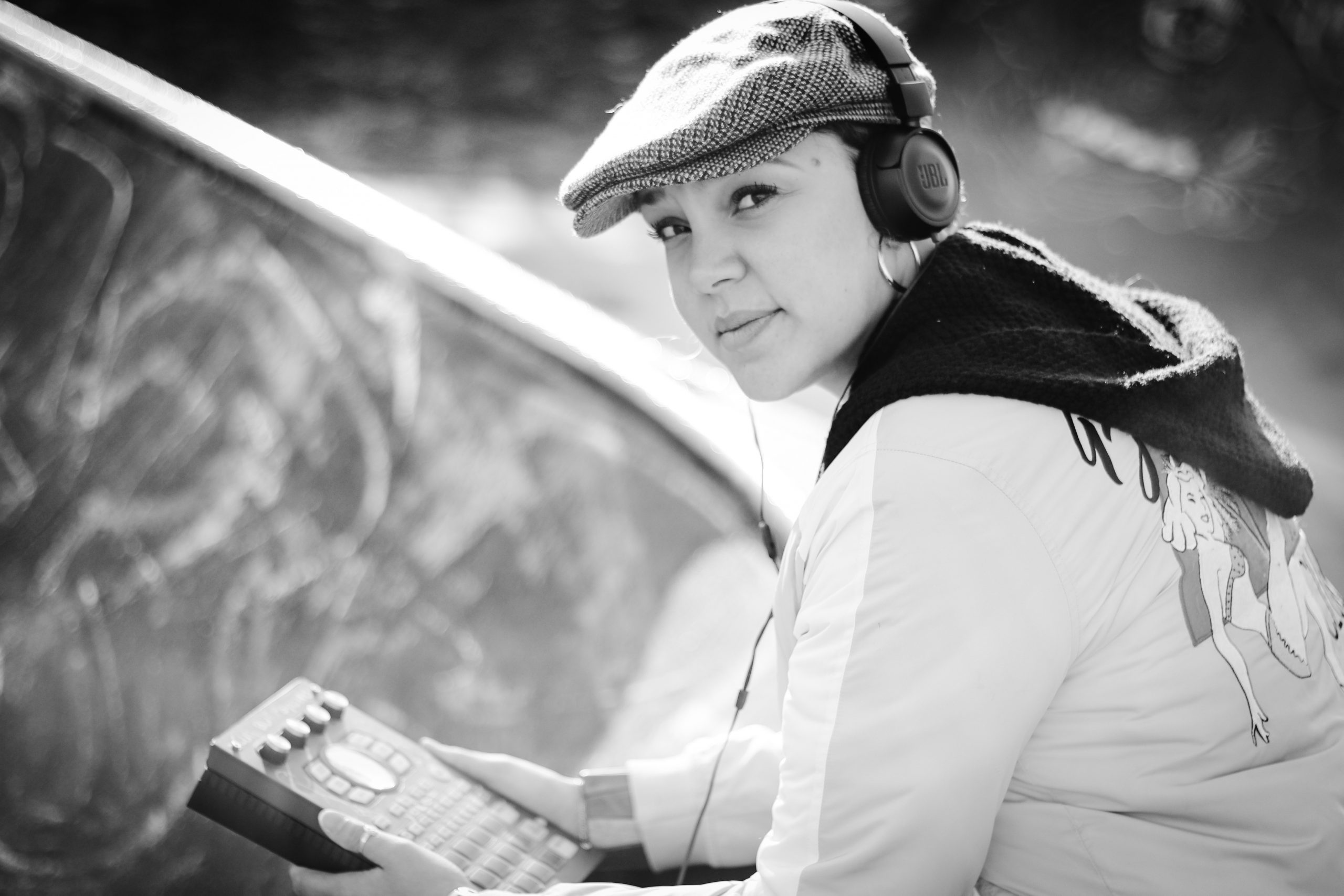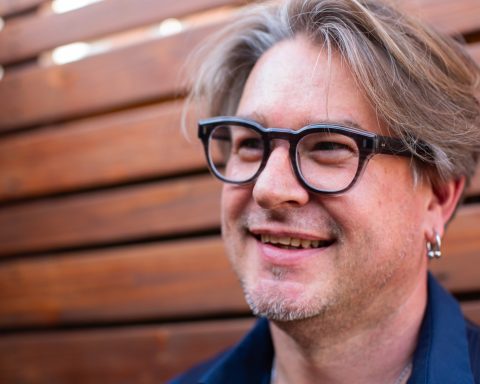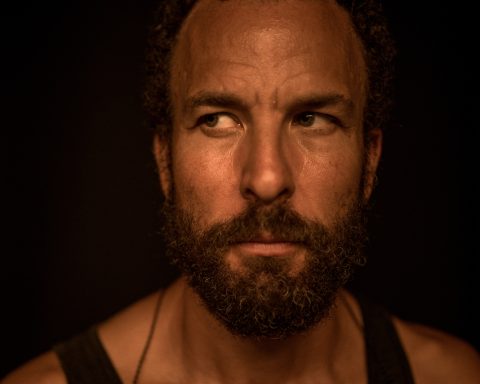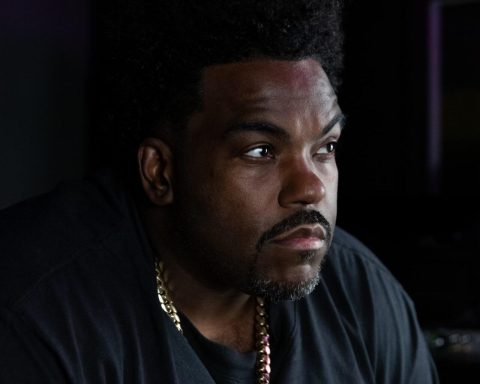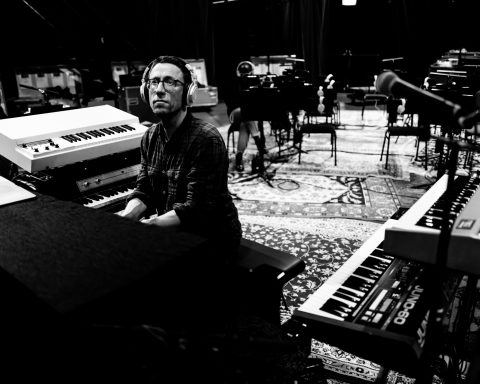For Miss Tahloulah May, hip-hop has always been at the center of her life. It’s no surprise then, that this lifelong passion for the culture would lead to creating music of her own. In a few short years, the Netherlands-based artist has carved out a distinctive sound. She discusses beatmaking, the pleasures and perils of crate digging, and how the SP-404—which she calls her brain—shapes her sound.
Sharing the Layers
In Miss Tahloulah May’s words, her release Reboot reflects a desire “to share as many layers of my soul in my projects as possible.” The result is a vibrant collection, displaying many sides of a burgeoning talent. Synths bubble alongside boom bap beats and inventive sampling. It signals the emergence of a major beat scene talent in Miss Tahloulah May.
Early Days and DAWless Mastery
When did you begin making music?
I didn’t start making music until I was thirty-two because I had anxiety. So I danced and did radio shows and sneaker blogging—a lot of hip-hop cultural stuff. When I was a kid, my mom laughed at me, analyzing her records. I was a weird kid and always tried to get hardware and keyboards.
You create music without a DAW, correct?
When I started, I used a DAW. Every time I closed my eyes, I was in the moment, feeling intuitive, relaxed, and creative. Then I opened them and saw all the little bits and pieces in the DAW and it shook me.
When I closed my eyes, it sounded so funky. But then I opened them, and it was all crooked. Then, I got my SP-404 in 2019. It’s so versatile, and you can do so much with it.
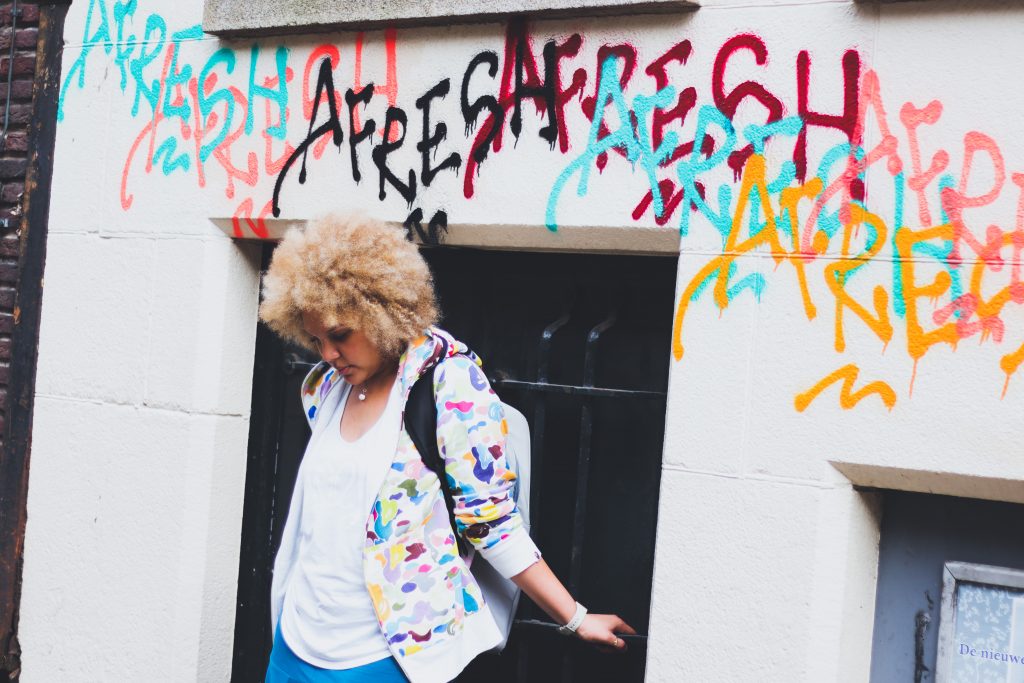
The 404 as Brain
Tell us what your creative process is like and how the SP-404 fits in.
The SP is my brain. I have my SP is in the center and then my synths, MPC, SP-555, and my SP-808. Then I combine everything into my SP and build the track in there. It’s the recording device and sequencer.
I’ll build my first 8 bar, then the second and third. I’ll use pads, listen, and hit another pad to blend. It’s so intuitive because you hear when you’re supposed to press next.
How important is it for new artists to be on social media?
There are so many beatmakers and producers. To reach people, you have to make sure you’re seen and heard. Privately. I don’t like social media. But for everyone I can reach as Miss Tahloulah May, I love it. You can find your fellow geeks, your fellow weirdos.
"To reach people, you have to make sure you're seen and heard. You can find your fellow geeks, your fellow weirdos."
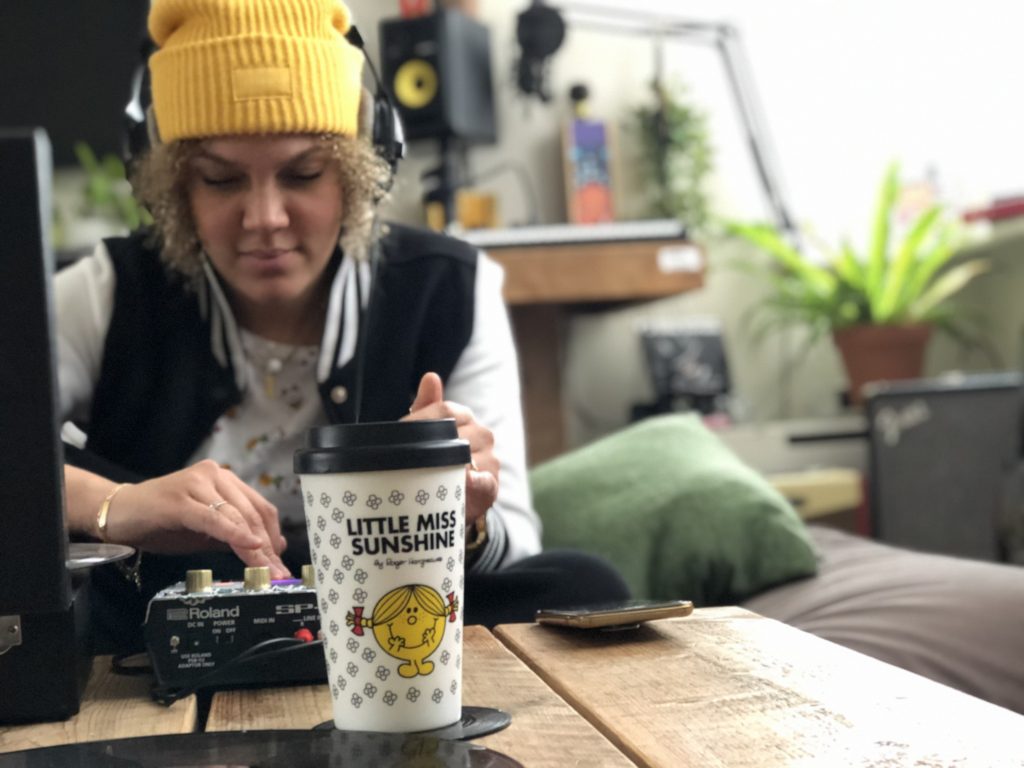
Influences at Home and Abroad
What are your thoughts on hip-hop and beatmaking in the Netherlands?
You have mainstream and underground. I don’t particularly like the mainstream sound. Underground there are some jewels and gems though! I don’t listen to Dutch hip-hop a lot, except older tracks. In the beatmaking scene, it’s all everybody doing their own thing, not really connecting enough.
You’ve listed J Dilla, Madlib, Marco Polo, and Pete Rock as influences. How did they contribute to your sound?
It’s more of a collective sense of “Do you.” I don’t listen to their pieces and try to redo them. Dilla drew outside the lines–he didn’t even see them anymore. When I started to make music, I’d been listening to him for so long I thought there were no boundaries. Do whatever you want and see where it leads.
You can use synthesizers, combine hip-hop with electronic music, and do so many things. It’s the sheer creativity of not having any restrictions, like Madlib, Dila, and RZA.
Sample the World
Do you sample everything from vinyl?
I only sample from records, except for vocals. When it comes to sampling, I pick all kinds of crazy, obscure records. Records you wouldn’t expect—dollar bin stuff
"Dilla drew outside the lines—he didn't even see them anymore. Do whatever you want and see where it leads."
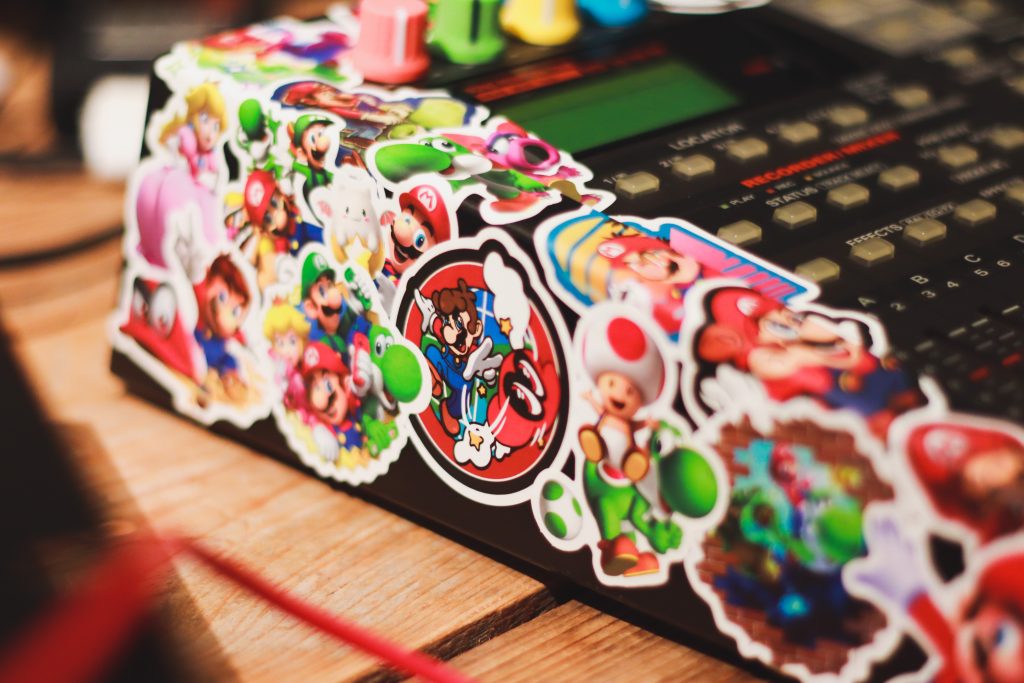
Can you share some unexpected influences?
I’m from Surinam, and I grew up with kaseko, which is Surinamese folk music. It’s African influenced which drew me to hip-hop as well because it’s got a lot of similarities.
Do you identify with the term lo-fi?
I don’t like to conform to one genre or subgenre, but lo-fi does mean something to me. I’m using hardware that gives a lo-fi quality to the sound. Lo-fi to me means having the vinyl with its crackles and weird sounds in the background.
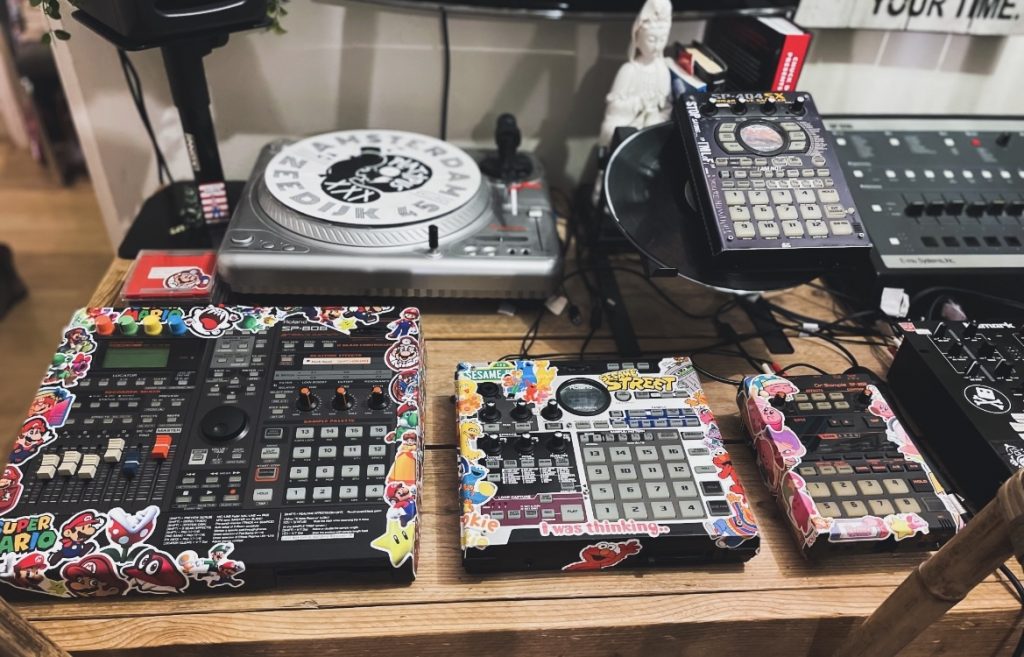
In the Crate Dust
In your Vinyl Thoughts series, you declare crate-digging is life. Any recent finds?
Recently, my kids went to school, my husband went to work, and I had a day off. So, I packed up my mini turntable and headphones. I went to this local record store and said, “I’m going to be here for the next five hours.”
They showed me the crates in the dust, so I sat on the floor and was like going through records. This girl picked up my turntable and started listening. She stopped at a record of Mongolian monks chanting and asked, “What are you using this for?” I don’t like to say I’m sampling, because I’m old school like that.
She said, “If you don’t want it, I want it.” I had to tell her, “You need to step back and give me the records. I’ve been looking for this for hours.” If you want them, put in the work. Do you not know the rules of crate digging?
"Don't let other people tell you you can't do this or you're not good enough yet. Listen to your
own voice."
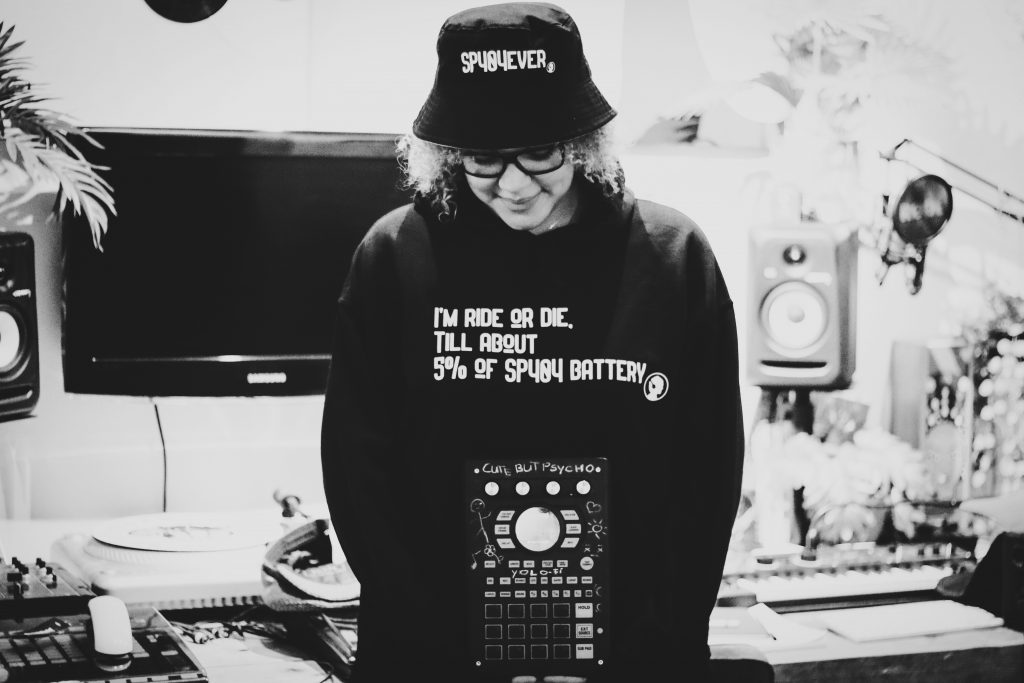
Advice Freely Given
Linafornia describes struggling a lot with the “boy’s club” in the LA Beat Scene. Has that been your experience?
You have the sweet guys who want to help you out, who see you as an equal or as a little sister. They’re respectful and beautiful souls. Surround yourself with them. Then there are also guys who think it’s OK to tell you how to do your stuff or give you a pop quiz about hardware.
Any advice for aspiring beatmakers, particularly women, beginning their career?
As a woman, you have to prove yourself twice. Don’t let other people tell you you can’t do this or you’re not good enough yet. Listen to your own voice.

